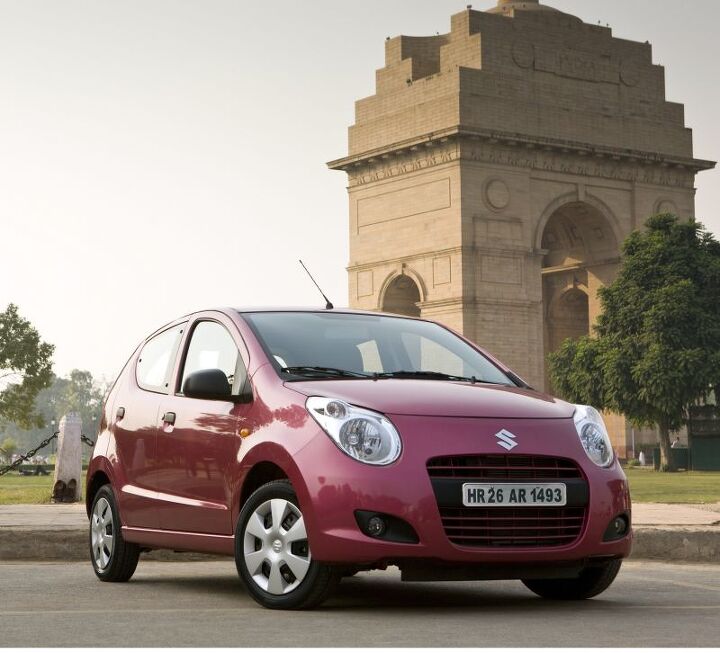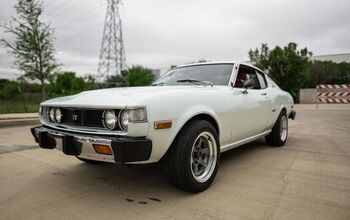Maruti Suzuki Gears Up For Indian Turf Battle
In my editorial on GM’s plant to take on the Indian market in partnership with SAIC, I wrote that Maruti Suzuki’s monstrous market share indicated the possibilities for GM. Well, the Indian market leader isn’t going to just sit on that lead. In 2007, Osamu Suzuki said that his firm’s Indian passenger car market share would never drop below 50 percent, an assertion that took two years to prove untrue. The WSJ reports that although the overall Indian market will probably grow 16 percent this year, Maruti’s share of that market has fallen over the last year from 45 percent to about 40 percent (with passenger car share down from 55 percent to 48 percent).
Unlike its rivals though, Maruti hasn’t overexpanded production on the subcontinent, and by the end of March 2010, demand could actually outstrip its local production of about 1m units. In contrast, India’s number two automaker, Hyundai, exports about half of its 600k unit production. As Reuters reports, Maruti is fast-tracking plans to expand production by another 750k units by 2015, in line with maintaining its market share. If Volkswagen takes a stake in Suzuki as has been rumored, the cash injection could fuel even more explosive expansion. Add planned India expansions by Honda, Ford and Renault into the equation, and it’s clear that GM’s Indian gambit will be flying into the teeth of some stiff competition.
More by Edward Niedermeyer


































Comments
Join the conversation
Osamu Suzuki should have known to "never" say "never", shouldn't he? Instead he should have said that Maruti Suzuki would remain very strong in the Indian market, because the company had earned every sale and planned to retain customers and gain new customers into the fold, as people became able to buy automobiles instead of scooters. Wasn't Volkswagen also at something like 50% plus of the Chinese market at one point? Not to forget that Henry Ford the original had over 50% of the US market from the mid 1910's through the 1920's. And GM had over 50% of the US market in the late 1950's, through the mid 1960's. "Never" say "never".
The reason why Maruti Suzuki has such a large market share in India is that in the early 1980s, the Indian government started up Maruti in a JV with Suzuki to create an indigenous modern Indian auto industry, so Maruti Suzuki had a bit of a leg up on other companies, Indian and foreign. I believe the gov't divested its final shares in 2007. Suzuki still owns 54%. Also, if I'm not mistaken, until Tata introduced the Nano, the Maruti 800 was the cheapest car in India, which contributes to Maruti's large market share. Outdated even by Indian standards, the 800 still makes up a big chunk of Maruti Suzuki sales. Though Suzuki may have allowed its market share in India to slide as other competitors have entered the Indian market, in the last2-3 years the parent company in Japan has come to regard their Indian operations as a strategic asset.